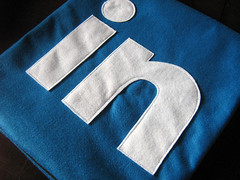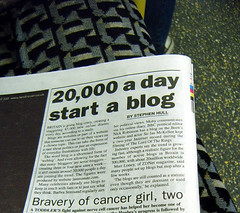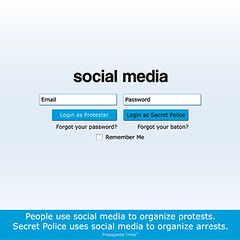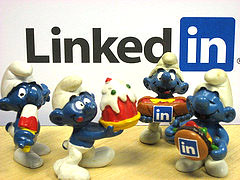I don’t talk all that often about ethics on this blog. I’ve talked about being socially responsible here and there, especially when it involves your family. I’ve addressed the topic of being ethical when writing articles, or when borrowing from someone else and representing it as your own. I also covered the topic when asking how far someone would go to recommend a product they knew nothing about just to make money.
I’ve covered the topic often on my business blog, but mostly in the realm of leadership. Years ago I even asked people directly what their ethics were. I would say oddly enough that post didn’t get much traction; it seems people are scared to discuss ethics. Well, I’m certainly not, that’s for sure.
This tale actually begins last weekend with Serena Williams winning Wimbledon. Some “kid” in Germany wrote on his Twitter profile that the only reason she keeps winning is because she’s “manly” and the other ladies on the tour can’t handle her power.
He was profiled in many sports stories, and there was a lot of conversation. I thought I could let it go until I read this Sports Illustrated story on Saturday talking about the reaction to the New York Times story the previous weekend, which I also found insulting to Serena, and this guy’s Twitter link was there.
I decided to check it out and was first stunned that he still had it live (since a lot of these people who say stupid things usually delete their accounts; he must think he’s the Orange Man who must not be named) and that not only was he still backing up his words but he had some supporters.
Frankly, that didn’t sit well with me; nope, not at all. I thought about it for maybe half an hour, then decided to engage him. However, I didn’t want to be another person calling him an idiot; after all, when you start with name calling there’s nowhere else to go but down. Instead, I decided to call him out on his ethics; thus, I started with this Twitter post:
“It seems xxxxxx doesn’t understand why his words are hateful against Serena. Privilege and youth does that to people; so sad…”
In case you’re wondering why I’m not putting his Twitter handle here, I’ve decided he’s gotten enough publicity from other corners. However, if you want to find him just check the SI story above. And, if you care, you can follow the conversation we had there for almost an hour.
It took about 10 minutes but he responded to the message. He asked me whether I wanted to discuss it on the basis or race or sports… I responded “Ethics. Care to discuss it?”
To his credit he accepted the challenge and rarely backed down. To his detriment he wasn’t prepared to discuss the ethics of his tweet, couldn’t handle other statistics I threw at him (he’d either say he couldn’t discuss other sports, anything about men, or that tennis today is different than tennis in the past, even less than 10 years ago), and his logic wasn’t close to being sound. Often he said “my point was…”, to which I replied “You never made a point; you said what you said without offering anything else”, which is true. I know this because I went back through his stream and he never said it until he was talking to me.
The only time he almost got angry is when I asked him if, because he had his picture with a young lady who’s standing next to him, if she was fair game since he’d now become famous and she’s in the picture with him. He said he thought I was better than that. I responded that I wasn’t going to say anything about her, just asked the question. He then responded that if someone wanted to say something about her it was their opinion. I asked if someone had things to say about his mother, or one day if he had a daughter if it would be okay for people to say things about them and his response was that everyone had a right to their opinion. I asked if that meant that people can pretty much get away with saying anything they want to, no matter how hateful it was… he didn’t answer that one.
I’m leaving out a lot of specifics but I think you get the picture. A couple of things I did ask were:
* what kind of positive response did you expect to get by saying something hurtful like that;
* are you saying that women can only win because they’re more “manly” than other women, rather than because they have more talent, drive and intellect;
* if her apparent manliness is why she wins, then what causes her to lose;
* if you played her in tennis and she beat you, would it be because she was more manly than you or had more talent?
The first question he didn’t answer. On the second question he said it was “implied” that she had talent, to which I said one can’t imply anything without saying it because we’re not mind readers. The third question he didn’t answer; same for the last.
After an hour I knew he wasn’t going to figure it out and I was getting hungry, as I realized I hadn’t eaten in over 10 hours at that point, so I left with two things:
* “I think you’re going to look back on this incident in 5-10 years and hate what you said last week”;
* “In any case we’ve been at this an hour and now it’s 6PM and I need to be going. I think you’re wrong but wish you the best.”
I gave all that backstory, not to make myself look good but to give me a platform to talk about this concept of ethics as it applies to social media, as well as life.
Ethics isn’t important because it changes everything about how you speak. Ethics is around because it changes your behavior towards more positive action. Ethics is what keeps us from robbing and beating people. It’s what keeps up from thinking the world revolves around us, our thoughts and our wishes. It’s what keeps us from intentionally hurting people’s feelings and, many times, from saying something absurdly stupid in public.
Ethics is what makes you decide to verify negative information before repeating it to others. It’s what helps to keep you from being intentionally mean and hateful on social media just because you have an agenda to push. It’s what helps you not ruin your reputation, especially if you have people you hope to work with who might see what you’ve said to someone. It’s what helps you realize that freedom of speech comes with consequences and isn’t a right to say whatever stupid thing pops in your head “just because”.
You know what? I think a lot of stuff, and not all of it is good or nice. I either keep it to myself or find a way to say what I have to say without being hateful… that is unless someone else said something hateful first. True, not every bit of discourse with others has to have a positive reason behind it. However, if one’s only purpose for spouting off at the mouth is to hurt someone else, or make themselves feel better by trying to put someone else down, especially someone who doesn’t deserve it, not only does that person’s ethics come into play but their self esteem is probably lacking as well (or they’re a total narcissist or psychopath; just sayin’…).
You know where my ethics are showing in the above situation? I thought about posting the conversation here or on another blog, word for word… but figured that wasn’t necessary. His supporters stayed away from the conversation and mine (which turned out to be no one I already knew; that was interesting…) stayed out of the conversation until it was over and then had their say.
At that point I was done with it. On my business blog I wrote a post titled Sometimes people don’t want to be motivated. Turns out that something not only don’t people want to be ethical, they don’t even know what it means.
So sad…











